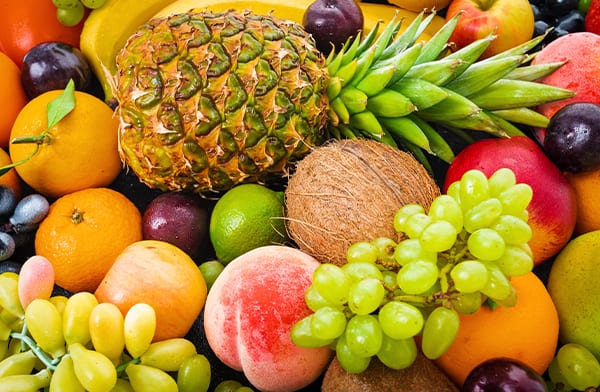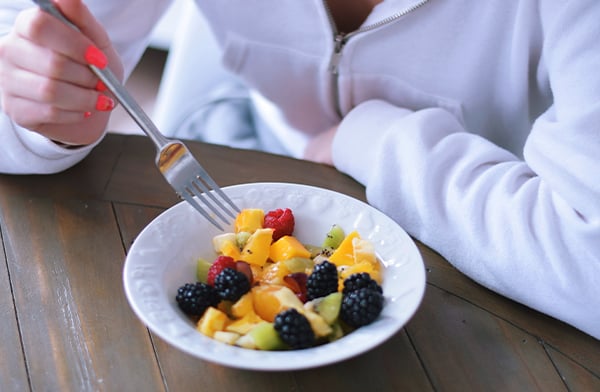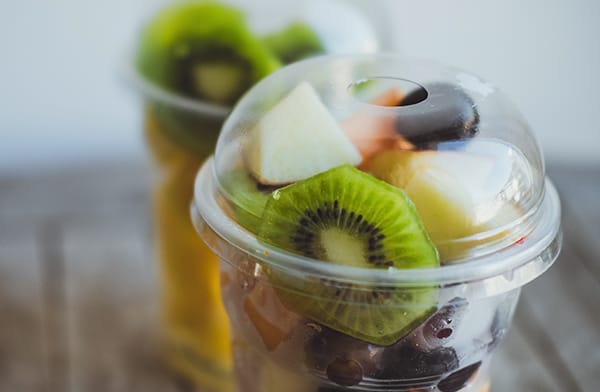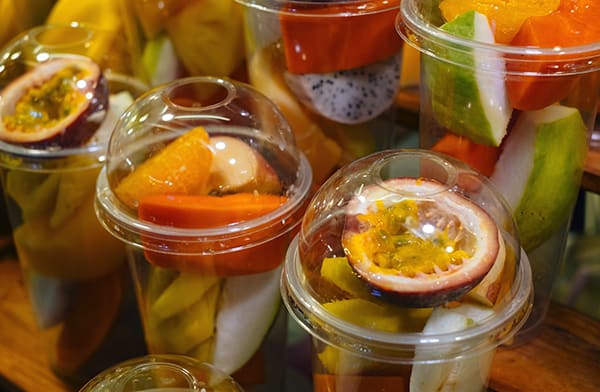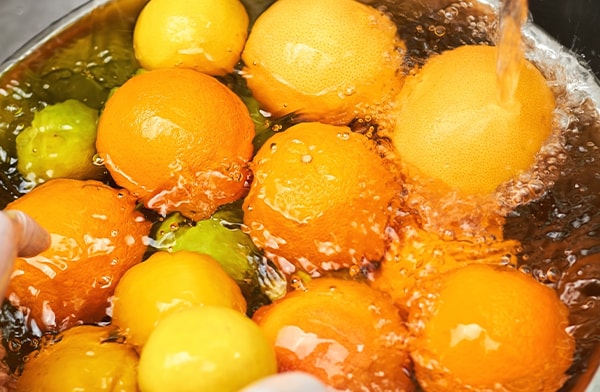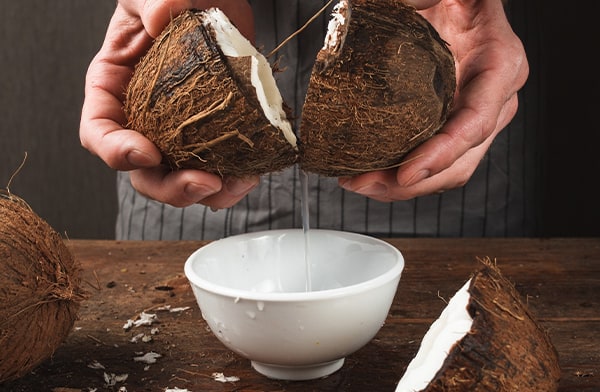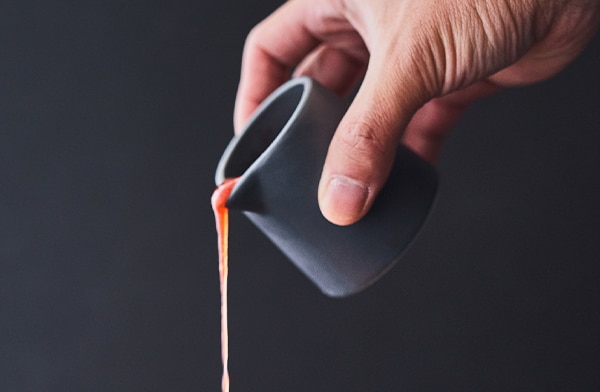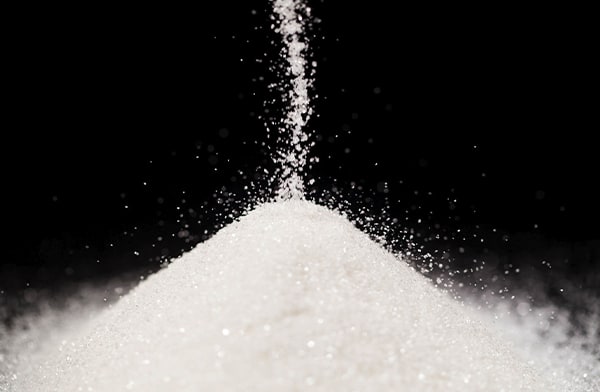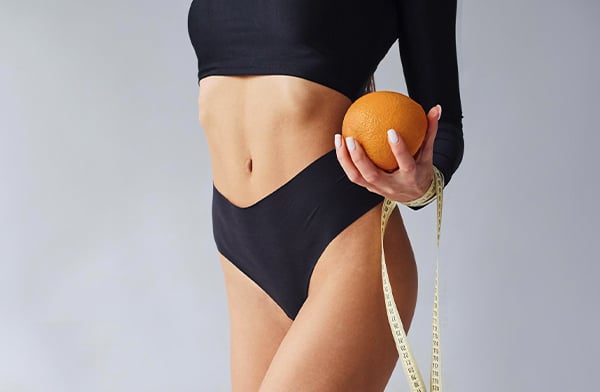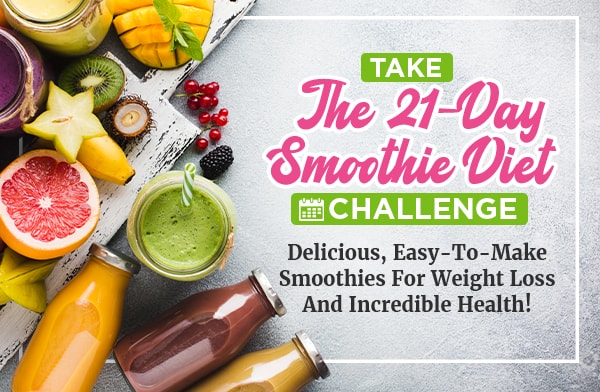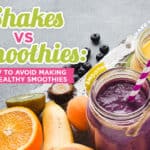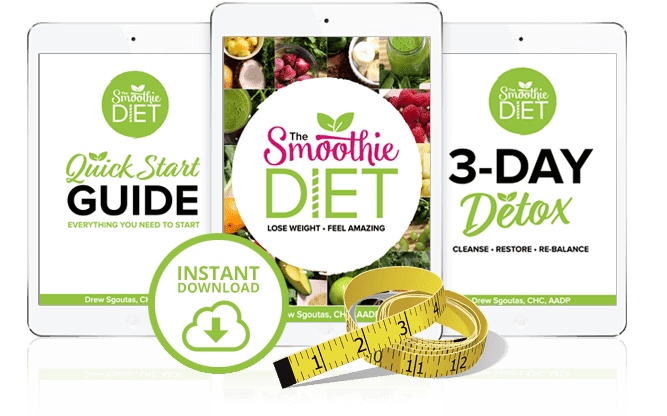Are Fruit Cups Healthy and Can They Help You Lose Weight?
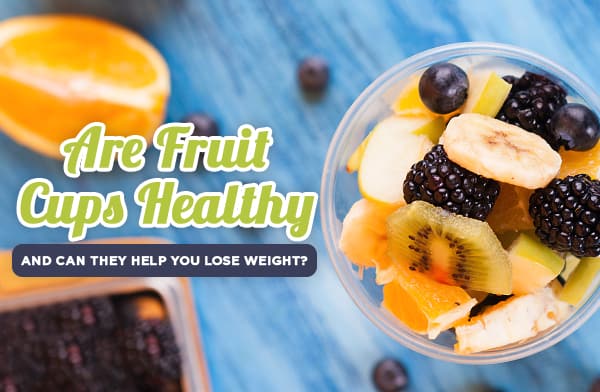
Public perception of healthy foods has shifted a lot over the years. Many things we used to think of as healthy are no longer viewed as such.
One of the biggest casualties of this is fruit, and more specifically, fruit products.
Don’t get me wrong; fruit is both delicious and nutritious. It’s generally quite healthy for you – after all, I wouldn’t recommend fruit-based smoothies if it wasn’t. Unfortunately, a lot of fruit-based products turn out to be bad for you.
Why Fruit is Good
Fruit is good for you for three reasons.
The first is water. Most fruit (and many vegetables) are loaded with water, so when you eat them, you get that water into your system. Pretty much everyone needs to drink more water, so getting more water in your diet in ways other than just drinking it is always a good thing.
The second is fiber. Many fruits and most vegetables are packed with fiber since they’re plants. While fiber is a carbohydrate, it’s specifically a form of carbohydrate that isn’t easy for your body to digest, if it can even digest it at all. This fiber helps regulate your bowels, slow your digestion, and brings a variety of benefits with it.
The third, and the one we’re most commonly aware of, is the vitamins and minerals present in fruit. Fruit is generally packed with a lot of great vitamins, including A, C, and E. It’s also packed with other nutrients, like minerals your body needs to function. The antioxidants present in fruit are also exceptionally good for you, which is why some – like blueberries – are considered to be “superfoods” due to their potency.
Why Fruit Can Be Bad
There’s just one problem with fruit: it’s loaded with sugar. It’s packed with natural sugars, but sugars nonetheless. It’s healthier than eating something packed with high-fructose corn syrup or a ton of cane sugar, but it’s not that much better.
- 1 cup of blueberries contains 15 grams of sugar.
- 1 cup of apple slices contains 11 grams of sugar.
- 1 cup of banana contains 28 grams of sugar.
- 1 cup of pineapple chunks contains 16 grams of sugar.
Figs, mangoes, lychees, grapes; they’re all surprisingly high in sugar.
Now, gram for gram, natural fruit sugars are a lot better for you than processed and refined sugars, and especially sugars present in things like corn syrup. Those added sugars are way worse for you.
Depending on your health and your diet, you may need to be very careful with fruit. For example, anyone operating on a ketogenic diet needs to be wary of fruit. See, in case you didn’t know, sugar is a carb. Keto is a heavily carb-restricted diet, such that you can only eat 50 grams of carbs per day.
50 grams of carbs might seem like plenty if you’re still only getting under 20 grams from a cup of fruit. The truth is, though, it’s a lot more restrictive than you might think. That’s because both starch and fiber are also carbs, and you get a lot of both of those in a lot of things you eat. While a cup of blueberries contains 15 grams of sugar, it contains 21 total grams of carbs, which is nearly half of your total daily allowance.
Remember, as well, that fiber is very important as part of a healthy diet, more so than sugar. Most of your carbs should come from fiber, which can be difficult with sugar-heavy fruits.
Of course, that’s mostly relevant if you’re on a heavily carb-restricted diet. Other diets, like Atkins, may be low carb but aren’t as restricted, giving you more leeway. And, of course, a diet that isn’t low-carb but instead focuses on macronutrient balance and generally healthy foods will have fewer restrictions.
Are Fruit Cups Bad?
The initial question posed in this post isn’t about a cup of fruit, but rather, a fruit cup. A fruit cup is a specific product, after all; usually a plastic cup full of fruit that you can take with you as a quick snack on the go. So, are they healthy?
The answer is: probably not, but it depends a lot on the product. That’s because there are a lot of different fruit cup products out there.
Plain fruit in a cup.
The healthiest of the fruit products on the market are typically the ones packaged by the store rather than the ones packaged by a manufacturer and shipped to their destination. These fruit packs and fruit cups are nothing more than fruit in a plastic container. Apple slices, grapes, pineapple chunks, melon cubes, berries; no matter what fruit is in them, that’s all that’s in them.
These are the healthiest because they have zero added sugar or preservatives. They’re also difficult to use as daily snacks because you either need to buy them every couple of days or deal with the occasional spoilage. Since the fruit is usually pre-washed and prepared for you and doesn’t have anything to preserve it, it can oxidize and brown, it can turn into mush, and worse. The shelf life for these kinds of fruit cups is generally pretty short.
The other issue with these fruit cups is seasonality. In the dead of winter, you’ll be looking at a very limited supply of available fruits, as well as greenhouse-grown fruits that aren’t very tasty in comparison to the fresh fruits available in summer. Still, it’s healthier than the preserved alternatives.
Fruit preserved in natural juice or water.
The second healthiest option is a fruit cup preserved in natural juice and water. Typically, these fruits are stored in water, with some preservatives added like sodium benzoate, citric acid, or potassium sorbate. These help prevent the fruit from browning or from being consumed by microorganisms, especially when they are then heat-treated and sealed. You often see this in canned fruits as well.
The water is labeled “juice” because the juice of the fruits seeps out. This can leave the fruit more watery and the water more like fruit juice but doesn’t sap many nutrients from the fruit itself. It is, however, likely less tasty than pure, fresh fruit would be.
If you want to stock up on fruit cups that will last a while, you generally need a preserved product, and your options are usually water or syrup. I’ll talk about the syrup option in a moment. Water-preserved fruit cups are fine, but it’s still better to get fruit without all of the added preservatives and other ingredients. This is especially true if you’re watching your sodium or potassium intake (such as if you have blood pressure, cardiovascular, kidney, or other problems.)
Fruit preserved in coconut water.
Some modern fruit cup products are “lightly sweetened” with added ingredients, but instead of using added sugar, they simply replace the regular water or syrup with coconut water. Coconut water is sweeter than regular water but has less sugar in it than syrups. A cup of coconut water has 6 grams of sugar in it, which is not nothing, but it’s a lot less than an equivalent amount of syrup. You also won’t be getting a full cup of coconut water in a fruit cup, and you might not drink all of the liquid either.
These are, generally speaking, a decently healthy way to eat a fruit cup without a ton of added sugar. However, they also add a bit of a coconut flavor to your fruit, which you may or may not actually like. A lot depends on the product you’re getting, too; some are stronger than others.
Fruit preserved in syrup.
Syrup comes in two forms; heavy and light. Light is thinner, heavy is thicker, and heavy has more sugar in it.
Syrup is important for people who don’t like the taste of fruit, but if you’re looking into fruit cups for a healthy snack, you probably like fruit. More often, these kinds of products are aimed more at children who won’t eat anything that isn’t laced with so much sugar you can barely taste any other flavors.
The truth is, fruit cups packed in syrup, whether light or heavy, are adding a ton of additional sugar to the mix. Even if you don’t drink the leftover syrup, you’re still getting 10-20 grams of added sugar in the fruit and syrup you eat. That’s double the amount of sugar you’re getting from the fruit alone, in most cases, and it’s all added sugar.
Since it’s added sugar, that means it’s processed sugar. It’s usually high fructose corn syrup or cane sugar suspended in liquid rather than natural sugars. That means it’s even worse for you than the natural fruit sugar would be. Generally, you should avoid these as much as you can.
Fruit preserved in non-sugar sweeteners.
In some cases, you can find fruit cups preserved and sweetened using non-sugar sweeteners. Some of these, like aspartame or sucralose, are notably chemical-tasting to some people. They’re sweet, but they’re also not sweet in the same way. It’s the same sort of taste you get from “diet” sodas, which are still pretty terrible for you.
Other sweeteners might be more natural, like honey, agave syrup, or date juice. These are natural, sure, but they’re still a bunch of added sugar.
Xylitol is the only artificial sweetener that is arguably not terrible for you, and even then, that may be largely because we just don’t know the long-term effects of high levels of consumption yet. In any case, many people don’t like these alternative sweeteners, and since they clash with sugar in the fruits, they aren’t as common in fruit cups as they are in soft drinks.
Other fruit-based products.
There are a lot of other fruit-based products out there marketed as healthy when they really, really aren’t. For example:
- Fruit snacks. Even the ones made with 100% juice are usually stripped of all of their fiber and other good nutrients; they’re little more than candy drops. Only the organic fruit snacks that are basically dried fruit puree are better.
- Fruit juices. Again, stripping out everything good leaves nothing more than water, sugar, and some natural flavorings. They’re basically just candy water.
- Applesauce and various fruit sauces are generally filtered to remove some of the pulp and have added sugar mixed in. Some of these can be good, but you have to be very picky with the ones you choose.
Unless you’re getting an organic product that is almost entirely just fruit puree, you’re losing value of the fruit and usually adding sugar. It’s no wonder that they’re usually fairly bad for you.
Can Fruit Cups Help You Lose Weight?
To wrap up, let’s discuss weight loss. Fruit cups can potentially be a tool to help you lose weight. However, they’re not likely to be as effective as you might hope.
Weight loss happens when you burn more calories than you take in. You can do that through dietary restrictions/alterations and through exercise. Since we’re talking about diet (and since my Smoothie Diet focuses on it), that’s the angle we’ll discuss.
Fruit cups can help you lose weight in two ways. First, if they’re whole fruits, they have fiber in them, and that fiber can help fill you up and make you less hungry and less likely to snack later. It’s not as effective as a protein-heavy snack like a handful of mixed nuts, but it’s better than something like a soft drink and a candy bar.
The second way fruit cups can help you lose weight is by replacing other, higher-calorie snacks. That’s how the Smoothie Diet works, too; it replaces higher-calorie meals with lower-calorie smoothies. Fruit cups work the same way on a smaller scale; they replace a 150-calorie snack with a 50-calorie fruit cup. Eventually, this can help you lose weight.
Is it an effective way to shed pounds? No, not at all. The reduced calories are so minor that it will take weeks to lose even one pound, and that’s much too slow to give you the positive reinforcement you need. However, as one part of a broader weight loss program, it can be an effective substitute.
Have any questions about fruit cups, the Smoothie Diet, or anything similar? Please feel free to leave a comment down below, and I will do my best to help you out however I can!

